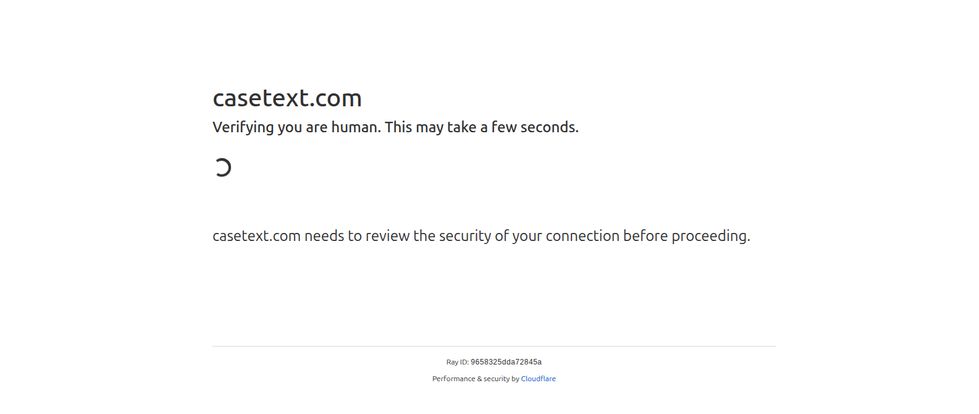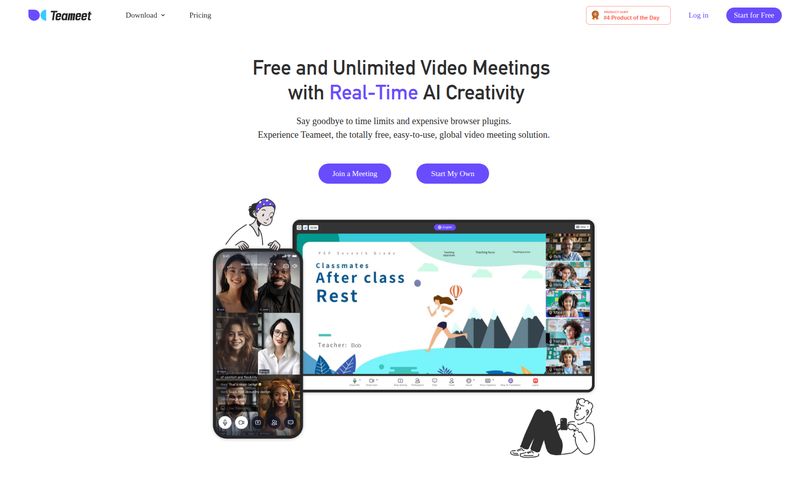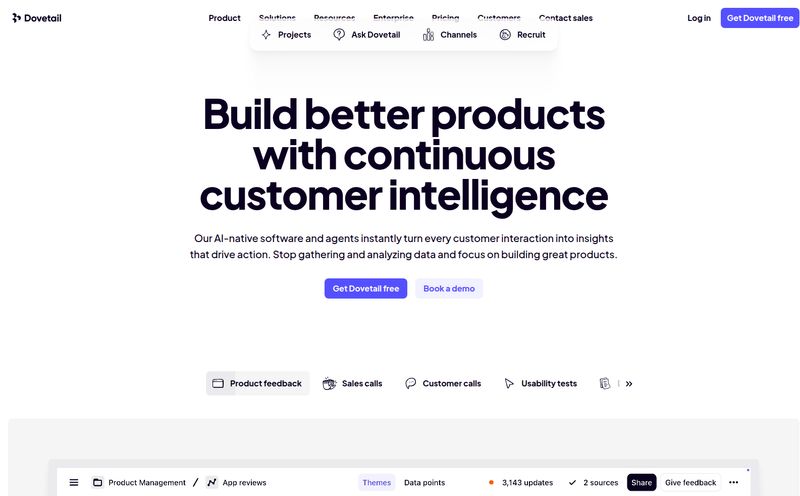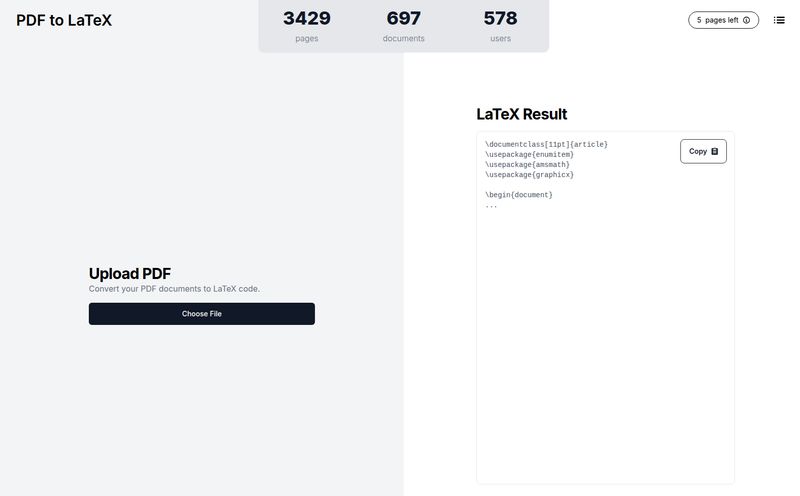If you've been in the legal tech or even the broader SEO and research world for a few years, you remember the buzz around Casetext. I sure do. It felt like one of those plucky startups poised to genuinely shake things up. For a while there, it seemed like every legal conference and tech blog was talking about them. They were the cool new thing, the promise of smarter, faster, and—most importantly—more affordable legal research.
Then, if you visited their site recently, you were greeted by a short, simple message. A digital tombstone, almost. It says the service is no longer available. A bit of a shock, right? So what happened? Did they just… fail? Not exactly. The story is actually a lot more interesting and, frankly, a classic tale from the world of tech disruption.
A Quick Trip Down Memory Lane: Who Was Casetext?
Before we get to the plot twist, let's rewind. Casetext wasn’t just another search tool. Launched over a decade ago, its mission was to take on the titans of the legal research world—namely, Westlaw and LexisNexis. Anyone who's worked in or adjacent to the legal field knows those names. They are the Goliaths; massive, expensive, and deeply entrenched institutions.
Casetext was David. Their slingshot was AI.
They built their platform around modern search technology, arguing that their AI could surface relevant cases and precedents that the old guard’s keyword-based systems might miss. The goal was to empower lawyers, especially those in smaller firms or solo practices, with tools that were historically only accessible to big-budget operations. It was about leveling the playing field. A noble cause, and one that got them a lot of attention and a loyal following.
The Crown Jewel: All About CoCounsel
The real game-changer for Casetext was CoCounsel. They billed it as the first AI legal assistant, and honestly, that wasn't far from the truth. This wasn't just a search bar. CoCounsel was designed to be like having a brilliant, tireless paralegal living in your computer, ready to work 24/7 without needing a single coffee break. It was a suite of tools powered by some seriously advanced AI (reportedly fine-tuned on top of OpenAI's GPT-4 model) that could handle tasks that used to eat up countless billable hours.
We're talking about things like:
- Reviewing huge document dumps: Imagine getting thousands of pages of discovery documents. Instead of a junior associate spending weeks reading through them, you could ask CoCounsel to review the entire set and flag every document that mentions a specific person or concept. A massive time-saver.
- Preparing for depositions: You could upload a witness's past testimony and have CoCounsel generate a list of potential questions, pointing out inconsistencies or key areas to probe.
- Analyzing contracts: It could scan a 50-page contract in seconds and identify missing clauses, potential risks, or areas that don’t comply with a company’s internal policies.
- Drafting legal memos: You could give it a research question, and it would come back with a fully drafted memorandum, complete with citations and analysis. Now, of course you'd have to check its work—more on that later—but the heavy lifting was done.

Visit Casetext
This was the core of Casetext's value. It wasn't just finding information; it was helping legal professionals use that information. It was a productivity multiplier. The promise was clear: do better work, faster, and for less money.
So, Where Did It Go? The Thomson Reuters Acquisition
So if it was so great, why did it disappear? Well, it turns out that when your David is that good with the slingshot, Goliath doesn't always fight back. Sometimes, he just buys the slingshot.
In mid-2023, the news broke: Thomson Reuters, the parent company of Westlaw, acquired Casetext for a cool $650 million in cash. And just like that, the plucky disruptor was absorbed by the very giant it set out to challenge.
In my opinion, this was both a win and a loss for the industry. On one hand, it's a massive validation of the technology the Casetext team built. You don't get acquired for that kind of money unless you've created something truly remarkable. On the other hand, it does raise questions about competition and pricing in the legal tech market. One of Casetext's biggest selling points was its affordability, a direct challenge to the expensive subscriptions of its competitors. Now, that technology lives inside one of those very competitors.
The Legacy Lives On: Finding Casetext's DNA in Westlaw and CoCounsel
The good news is that the technology isn't gone. It's just moved. As the banner on the old Casetext site says, the tech now lives on in two main places: Westlaw and a standalone CoCounsel product, both under the Thomson Reuters umbrella.
This means that CoCounsel’s powerful AI assistant capabilities are being integrated directly into Westlaw's platform, specifically their 'Precision' tier. So, Westlaw users now have access to that AI-powered document review, memo generation, and deposition prep. The revolutionary tech has been folded into the establishment, giving it an incredible upgrade. It’s no longer an 'us vs. them' situation; it’s a 'we bought them' situation.
Was Casetext Perfect? A Balanced Look
Let's be real, no tool is a magic wand. Even at its peak, using Casetext and CoCounsel required a certain mindset. The biggest hurdle, which is true for all AI right now, is that you can't just blindly trust the output. The AI is a powerful assistant, not a replacement for a lawyer's brain and professional judgment.
You still had to review the generated memos for accuracy, double-check the cited cases, and ensure the legal reasoning was sound. It was a tool to augment, not automate, a lawyer's work. There was also a bit of a learning curve. Getting the best results meant learning how to write effective prompts—a skill that’s becoming increasingly valuable in every profession, it seems. You couldn't be lazy with your inputs and expect gold on the other side.
But these were less 'cons' and more just the realities of working on the cutting edge. For the time and cost savings it offered, most users felt it was a trade-off well worth making.
Your Casetext Questions Answered
- What was Casetext?
- Casetext was a legal technology company that provided an AI-powered research platform. Its most famous product, CoCounsel, was an AI assistant designed to help legal professionals with tasks like document review, memo drafting, and contract analysis.
- Is Casetext still available?
- No, the standalone Casetext service is no longer available. The company was acquired by Thomson Reuters in 2023.
- Who bought Casetext?
- Thomson Reuters, the parent company of Westlaw, acquired Casetext for $650 million. Casetext's team and technology have been integrated into Thomson Reuters' legal products.
- What is CoCounsel now?
- CoCounsel's AI assistant technology is now being integrated into Westlaw's products, particularly Westlaw Precision. It is also offered as a professional-grade AI assistant by Thomson Reuters.
- Will this make legal AI more expensive?
- That's the big question. Casetext was known for its competitive pricing. Now that its technology is part of a premium product line from an industry giant, it's likely that access will come at a higher price point, reflecting its integration into a more comprehensive suite of tools.
- Was the AI in CoCounsel reliable?
- It was considered highly advanced, but like all AI tools, it required human oversight. Legal professionals still needed to verify the AI's output for accuracy and legal soundness. It was a powerful assistant, not an autonomous lawyer.
A Final Word on a Legal Tech Pioneer
So, the ghost of Casetext isn't really a ghost at all. It's more like its spirit has been reincarnated into a new, much larger body. The acquisition marks the end of an era for an independent disruptor but also a huge step forward for the mainstream adoption of legal AI. Casetext proved that AI could be more than a gimmick in the legal field; it could be a genuinely transformative tool. They may not have slain the giant, but they certainly made it sit up, take notice, and ultimately, invite them in. And for that, their legacy in the world of legal tech is secure.
Reference and Sources
- Thomson Reuters Completes Acquisition of Casetext - https://www.thomsonreuters.com/en/press-releases/2023/august/thomson-reuters-completes-acquisition-of-casetext.html
- The former Casetext website - casetext.com



